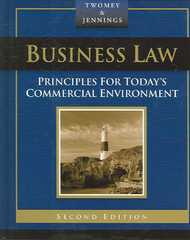Answered step by step
Verified Expert Solution
Question
1 Approved Answer
First read the link below and the answer the questions. https://freakonomics.com/2013/10/10/how-to-raise-money-without-killing-a-kitten-a-new-freakonomics-radio-podcast-full-transcript/ Why, if you are trying to raise money for a good cause, should you

First read the link below and the answer the questions.
https://freakonomics.com/2013/10/10/how-to-raise-money-without-killing-a-kitten-a-new-freakonomics-radio-podcast-full-transcript/



Step by Step Solution
There are 3 Steps involved in it
Step: 1

Get Instant Access to Expert-Tailored Solutions
See step-by-step solutions with expert insights and AI powered tools for academic success
Step: 2

Step: 3

Ace Your Homework with AI
Get the answers you need in no time with our AI-driven, step-by-step assistance
Get Started


